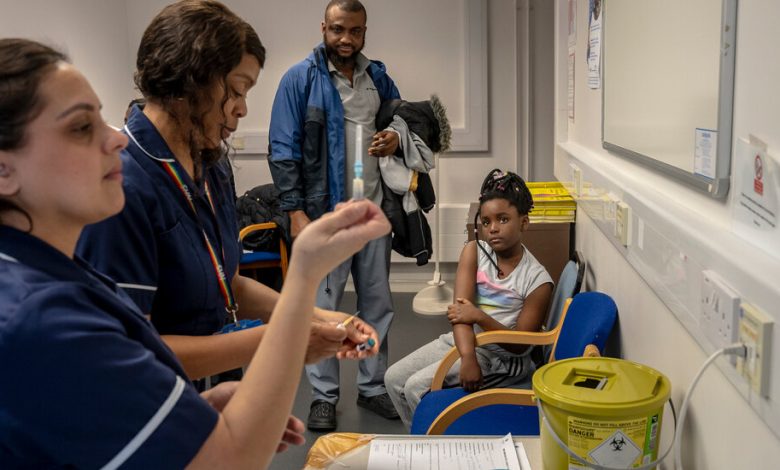Vaccination Rates Dipped for Years. Now, There’s a Measles Outbreak in Britain.

The 5-year-old looked nervously at her older brothers, scanning their faces for any sign of distress as needles were swiftly stuck into their upper arms, the syringe plungers pushed in and the measles, mumps and rubella vaccine administered. Whether it was for her benefit or not, they barely flinched.
Then it was her turn. The girl, Oma Nnagbo, looked wide-eyed at the cheerful nurse who a moment later declared, “All done, very brave!”
Michael Nnagbo, 40, had brought his three children to this pop-up vaccine clinic in Wolverhampton in England’s West Midlands after receiving a notice from their school about a measles outbreak in the nearby Birmingham area.
“It’s what we have to do, and it’s important to do,” Mr. Nnagbo said. “I just want them to be safe. And it was easy, you could just walk in.”
Cases of measles, a highly contagious but easily preventable disease, have begun to crop up in clusters as the number of children getting the combined measles, mumps and rubella vaccine has declined globally. The trend worsened after the coronavirus pandemic because of a lack of access and hesitancy among some groups. The measles virus can cause serious illness and, in the most extreme cases, death.
Across Europe, measles cases rose more than 40-fold in 2023 compared with a year earlier — from less than 1,000 to more than 40,000 — according to the World Health Organization. And while much of that increase was concentrated in lower-income nations like Kazakhstan, more prosperous nations, where higher vaccination rates had long made cases measles rare, are also experiencing worrying outbreaks.



